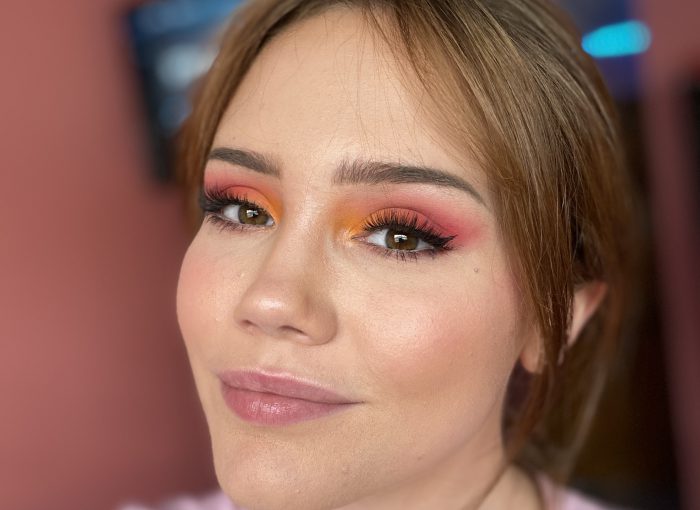By Catherine Murphy
As soon as I graduated high school, I started working and going to college full-time. Even though I lived at home the whole time, I felt an unfounded pressure to work hard at my job and school. I needed to save money for the future and graduate as soon as I can. I didn’t know why. I was just getting by each day and certainly wasn’t thinking about my post-graduation plans. I just kept working. In the service industry, too, which meant 12-hour shifts spent sweating, running around, and worrying about whether I’d get home to submit that assignment in time. Being a Writing and Rhetoric major, it was usually a matter of cranking out a few thousand words rather than clicking answers on a quiz. I loved the work I was doing, but everything began to feel like a chore.
I was getting by, both as an employee and a student, but personal growth was the furthest thing from my mind. My priorities were with serving these institutions rather than finding myself, even though the years after turning 18 are a formative time in anyone’s life. I couldn’t imagine having even a week to myself.
Once the pandemic happened, though, that changed.
Eventually, I felt comfortable enough to just relax, something that always felt impossible with the pressures I used to face.
When the virus hit and places started to shut down, I, like many others, got laid off. When places started opening again, I opted not to go back. I live with my disabled mother and young niece, so it felt like too much of a risk to expose myself, and ultimately them, to the virus. When it turned out that I would be unemployed for an indefinite amount of time, I didn’t quite know what to do with myself. Being a working student had become such an integral part of my identity. It was jarring to not only revert to “just” being a student, but a student who was stuck at home pretty much 24/7. I had always thought of college students who didn’t also work as privileged, and here I was, that same privilege being forced upon me.
The time that would usually be spent at work, getting ready for and commuting to work, or otherwise dreading work, was now mine to spend however I wanted. After a short adjustment period, I realized I should do something with it.
I used this unprecedented free time to explore the things that I’d been wanting to do for years. The sewing machine that had sat collecting dust on my shelf finally got put to use, even if it did result in many unfinished projects. With no reason to go out in public anymore, I played around with different aspects of my appearance: different clothing styles, new hair colors, colorful makeup looks. I tackled my lifelong issues with acne after taking the time to do some research online. Eventually, I felt comfortable enough to just relax, something that always felt impossible with the pressures I used to face. I sat in my backyard to soak in the sun. I played with my niece, even did her makeup along with my own when she asked—we’re closer than ever now, and I get to see her grow up every day. I wrote stories and read for pleasure. After falling down the Internet rabbit hole that was specialty coffee-making, I even picked up an espresso machine to make lattes from home. While not every hobby I picked up stuck, they taught me valuable skills. I’m much better at sewing and mending because of all the projects I undertook, and while I don’t do flamboyant makeup looks every day, my technique is much better than ever before. Despite the anxiety that has plagued this last year, I grew as a person—and even enjoyed myself in the process.
I am a different person than I was a year ago. My confidence has gone way up, and I feel healthier both mentally and physically. I am finally exploring interests that give me a sense of self that I never had before. Even my schoolwork became more interesting. I’d always loved my major, but being unencumbered by work allowed me to really sink my teeth into the material and absorb what I was learning. Rather than feeling forced to crank out hundreds of words under a tight deadline, balancing my school work with my “real” work, I was able to write multiple drafts of every piece and rework them to something I was proud of.
I decided to take on an internship, as well. I was lucky enough to serve as a Fiction Editor for Issue 32 of UCF’s literary magazine, Cypress Dome. Now, coming up on graduation, I have some experience under my belt. As things are starting to shift back to how they were before, I feel confident going into the job field post-graduation. I have the wellbeing and experience to make me confident in my job search, but even if I have to go back into the service industry until I can find something more permanent, I will go with a stronger sense of self and a better appreciation for life in general.
So, yes, I am a different person than I was a year ago, but I doubt that would be the case if it weren’t for this forced quarantine.
Forced. Why did it take a pandemic for me to change the unhealthy habits I’d put upon myself since high school? As much as I’d been enjoying my newfound sense of self, there was a guilt and confusion that persisted. The pandemic revealed the usual societal expectations of working college students are preventing them from becoming their best selves in one of the most formative times of their life, but it’s become so normalized that we don’t realize it.
The pandemic has pulled away the curtain to reveal some seriously flawed aspects of our society, the pressure for college students to overwork themselves being one of them.
I never thought my life was bad before the pandemic, but looking back, it certainly wasn’t great. I was constantly anxiety-ridden, tired, and only judging my days based on my next shift or assignment due. I never had to work—a fact which showcases a privilege which many students aren’t afforded—but I felt some unfounded need to. The work culture that underlies the modern college experience is an unhealthy one.
We’re expected to save our money, even if it is from a job with a minimum wage that hasn’t been raised to keep up with the cost of living. We’re expected to start college immediately, even if it means we have to take out a loan to do so. We’re expected to start networking long before we graduate, even if we’re working and doing school full-time. We’re expected to balance all this while we keep our minds and bodies healthy, even though that feels impossible most days.
It all feels like a little too much to put on young adults—the massive burnout that students have experienced in the last year proves that it definitely is.
I am incredibly grateful I have parents who support me while I obtain my degree, that I don’t need to work in order to pay my bills. The last year has been a lifechanging one which has given me the opportunity to finish my time at UCF a much happier and healthier person. Having been on both sides of the spectrum, though—a working college student and an unemployed one—gives me the perspective to realize how unfortunately work-centric our society is, and how negative of an effect it has on our students. While, of course, many students have the mental capacity to do both and still find time to do fulfilling things on the side, that’s certainly not the case for everyone. It wasn’t for me.
The pandemic has pulled away the curtain to reveal some seriously flawed aspects of our society, the pressure for college students to overwork themselves being one of them. The progress I’ve made over the last year also comes with the permanent and disconcerting realization of this fact. I hope that as our society progresses over the next few decades, led by the hard workers that I notice among my peers, that this will be an issue that gets addressed.





